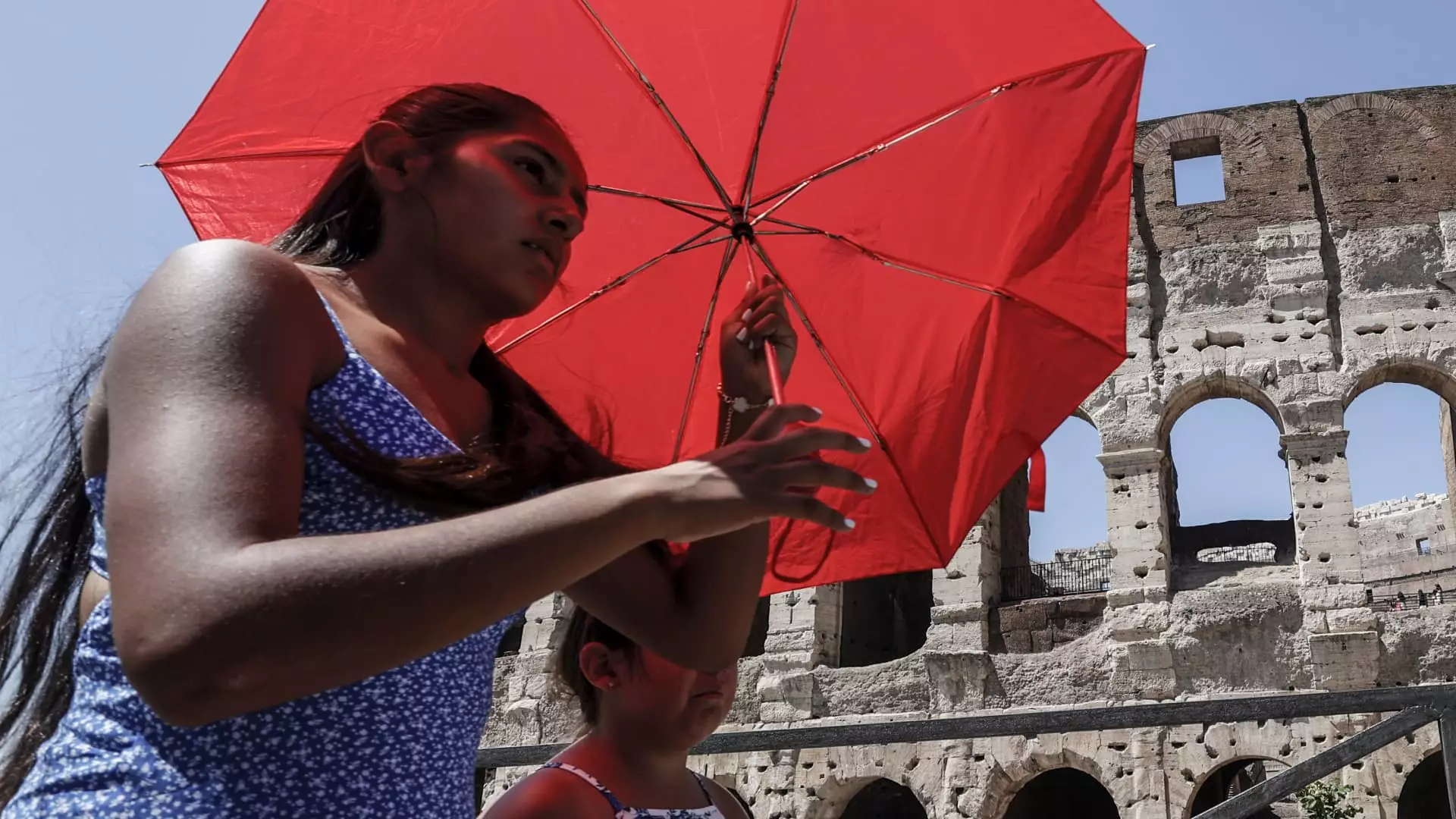In recent years, summer travel patterns have remarkably transformed, particularly regarding trips to Europe. With record heat waves hitting much of the continent during the peak summer months, a significant number of travelers are reevaluating their vacation timelines. According to insights from Glen Hauenstein, President of Delta Air Lines, tourists are increasingly opting out of the sweltering summer months like July and August for more temperate seasons. This shift is not merely a passing trend but indicative of broader changes in consumer behavior that reflect a desire to escape both the heat and the crowds prevalent during peak tourist season.
The data supports these observations; the European Union’s climate monitoring has confirmed that this past summer was the hottest on record in the Northern Hemisphere. As climate concerns grow, vacationers are no longer satisfied with enduring excessive heat during their leisure time. Instead, many are looking to enjoy the milder temperatures of September and October, making these months increasingly popular for trips to European destinations historically congested with summer tourists. This evolution in travel behavior aligns with a growing awareness of climate issues, prompting a more conscientious approach to vacation planning.
In response to shifting tourist preferences, airlines are adjusting their schedules and services. Companies like United Airlines are taking proactive steps by extending their flight schedules into the shoulder seasons, recognizing the opportunity to cater to this emerging market. Patrick Quayle, United’s Senior Vice President of Global Network Planning and Alliances, revealed that the airline has begun deploying European routes as early as March and extending them through November. This adjustment illustrates a strategic pivot towards a more flexible flying schedule, accommodating travelers’ evolving preferences for timing.
Value is another significant component driving the change in travel habits. Travelers seeking more affordable options without compromising on experiences are discovering that the shoulder months often offer better deals in terms of both airfare and accommodation. This finding aligns with an overarching trend where budget-conscious consumers prioritize value and flexibility, emphasizing a willingness to travel off-peak in exchange for cost savings and comfortable conditions. As airlines and tourism boards adapt to this demand, a healthier balance could be struck between tourist influx and environmental sustainability.
The trend toward traveling during cooler months could signify a substantial shift in the tourism industry, especially for European destinations that have seen a surge in summer travelers. Moving forward, stakeholders in the travel sector must take note of these evolving preferences. By aligning their offerings with the changing landscape of consumer desires—favoring cooler temperatures, affordability, and alternative travel attitudes—airlines, hoteliers, and event organizers can strategically position themselves for success. As evidence mounts that travelers are increasingly prioritizing comfort over tradition, this could herald the dawn of a new paradigm in European travel.

